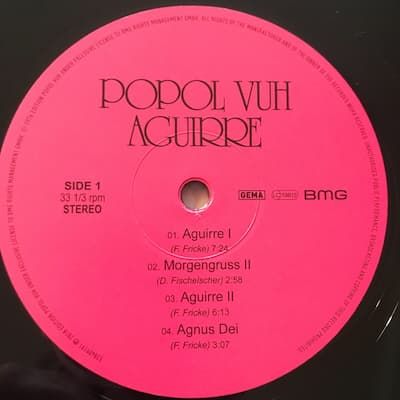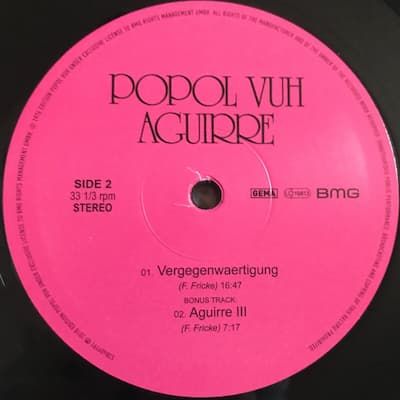AGUIRRE
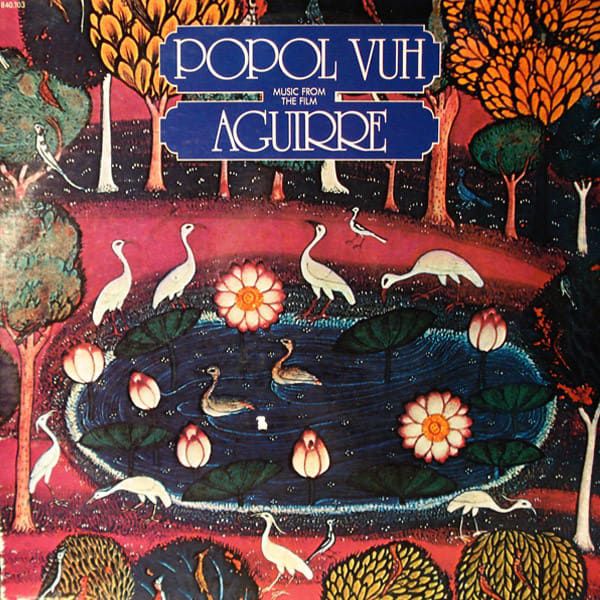
I. AGUIRRE: Music from the Film ‘Aguirre’
LP: Cosmic Music/Ohr/Barclay 840.103 - 1976 - France
CS: Barclay 4 840.103
LP: Barclay PLDSQ 6040 - France
LP: PDU Pld. SQ6040 - 1975 - Italy [ quadrophonic ]
LP: Ohr/KK 2021275-8 (Pop Import) - 1982 - Germany
CS: Ecos EM-27 - 1985 - Spain
LP: Ohr/KK MC 18 (Pop Import) - Korea
CD: KICP-2842 2300 Y - Japan
LP: Think Progressive TP 019 - 1997 - Germany [ 180 gram vinyl edition ]
CD: SPV 08570142 - 2004 - Germany [ with bonustrack ]
CD: Belle Antique MAR 04926 - 2004
CD: Arcangelo ARC 7188 - Japan - 2006 [ same as SPV-release ]
CD: Belle Antique BELLE 122007 - Japan - 2012 [ same as SPV-release ]
LP: Wah Wah Supersonic LPS 158 - Spain - 2015 [ with bonustrack & inserts; 1000 copies ]
CD: BMG 538 392332 - 2018 - Germany [ tracklist same as SPV. Newly remastered by G.Hieronymus & F.Fiedler ]
II. AGUIRRE
LP: KK/Pop Import 20 21275-8 - 1975/1982 - Germany (with PDU label on the disc)
III. AGUIRRE
CD: Spalax SPA - 1992 - France
CD: Spalax SPA 14974 - 1996 - France
CD: Japan
CD: ZYX / OHR 70023-2 - cd - Germany - 1999
I. AGUIRRE: Music from the Film ‘Aguirre’
Track list from Cosmic Music/Ohr/Barclay 840.103 - 1976:
Side 1:
Aguirre I - Fricke
Morgengruss II - Fichelscher
Aguirre II - Fricke
Agnus Dei - Fricke
Side 2
Vergegenwärtigung - Fricke
Extra track from: SPV 085-70142 - 2004 & Wah Wah Supersonic LPS 158 - 2015:
Aguirre III - 7:16
II. AGUIRRE
Track list from KK/Pop Import 20 21275-8 - 1982:
Side 1:
Aguirre I - Fricke
Morgengruss II - Fichelscher
Aguirre II - Fricke
Agnus Dei - Fricke
Side 2:
Vergegenwärtigung - Fricke
III. AGUIRRE
Tracklist from ZYX / OHR 70023-2 - 1999:
Aguirre I - Fricke
Morgengruss II - Fichelscher
Aguirre II - Fricke
Agnus Dei - Fricke
Vergegenwärtigung - Fricke
Spirit of Peace I* - Fricke
Spirit of Peace II* - Fricke
Spirit of Peace III* - Fricke
I. AGUIRRE: Music from the Film ‘Aguirre’
Liner notes from Cosmic Music/Ohr/Barclay 840.103 - 1976:
Florian Fricke - piano, spinet
Daniel Fichelscher - E & A guitar, percussion
Djong Yun - vocal
Produced by Popol Vuh for Ohr Musik
Recorded at Bavaria Tonstudio, Munich
Arranged by Florian Fricke
III. AGUIRRE
Liner notes from ZYX /OHR 70023-2 - 1999:
Florian Fricke: Piano, Spinett
Daniel Fichelscher: E & A Guitar, Percussion
Djong Yun: Vocal
Originally released in 1976
Produced by Popol Vuh
For Ohr Musik
Recorded at Bavaria Tonstudio, Munich
Arranged by Florian Fricke
* Previously unreleased
Bio from ZYX /OHR 70023-2 - cd - 1999:
Florian Fricke was born by Lake Constance in 1944. From 1959 til;l 1963 he studied music in Freiburg and Munich, where he was a pupil of Rudolph Hindemith, Paul Hindemith’s brother. At the age of 19 he gave up studying, “just so that I could live”, as he said. At the age of 25 he became acquainted with the Moog synthesizer, which led to the founding of Popol Vuh. Foreign travels took, him, among others, to Africa and to the Curds on the Euphrates, to India and Nepal. And in the eastern Himalaya he studied Tibetan communal singing. He once described his hobbies as the epics and myths of the various people as well as archeology.
In 1978 Fricke founded the ‘Working group for creative singing‘ and became a member of the Society for Breathing Therapy. He holds lectures all over the world on his work in this field.
Since 1972 Florian Fricke has been working with the director Werner Herzog, whose films acquired increased intensity thanks to Fricke’s musical trademark. The film director’s “audio interpreter” composed the soundtracks to the films ‘Aguirre, der Zorn Gottes” (Aguirre, the Wrath of God), ‘Herz aus Glas’ (Heart of Glass), ‘Nosferatu’, and ‘Fitzcarraldo’ and ‘Cobra Verde’. The independent nature of his music has continually proved to be a great asset to Herzog’s films, which often have a somnambulistic character. And this independence could already be seen in the fact that the soundtrack to the film ‘Nosferatu’in 1978 ws not marketed under the film title but as ‘Brüder des Schattens - Söhne des Lichts’ (Brothers of the Shadows - Sons of Light).
Manfred Gillig-Degrave
I. AGUIRRE: Music from the Film ‘Aguirre’
1979:
Werner Herzog: [...] “I’ve always worked very hard to select the music, but, in doing so, I’ve usually worked very closely with my friend Florian Fricke. For example, to create the music that is used in the opening of AGUIRRE we used a very strange instrument which we called a ‘choir-organ’. This instrument has inside it three dozen different tapes running parallel to each other in loops. The first of these tapes has the pitch in fifths, and the next has the whole scale. All these tapes are running at the same time, and there is a keyboard on which you can play them like on a organ so that, when you push one particular key, a certain loop will go on forever and sound just like a human choir but yet, at the same time, very artificial and really quite eerie”. (Images at the Horizon’)
1993:
Keyboards: schon recht früh, nämlich so ab 1972, begann dann deine Zusammenarbeit, mit dem Filmemacher Werner Herzog, eine Kollaboration, die den Namen Popol Vuh auch über den Kreis der bloßen Musikkonsumenten weit hinaus bekannt machte. Von ‘Aguirre, der Zorn Gottes’ über ‘Herz aus Glas’, ‘Nosferatu’ bis ‘Fitzcarraldo’ und ‘Cobra Verde’ hast du die Musik für Herzogs Filme geliefert. Wie begann eigentlich eure Zusammenarbeit?
Florian Fricke: Das hat - wie eigentlich alles im Leben - einen ganz normalen und unmystischen Anfang. Herzog war damals für die Synchronisation von ‘Aguirre’ in Rom und suchte eine passende Musik bei Ennio Morricone und fand sie nicht. Eine gemeinsame Bekannte machte Herzog auf mich aufmerksam. Er rief mich später in München an, und zwei Tage später war ich in Rom und habe mir den Film angesehen. Zurück in München habe ich dann eine Musik dazu angefertigt, die Werner Herzog auf Anhieb gefiel. Seitdem gibt es die Zusammenarbeit. So einfach war das. (Keyboards)
1996:
Gerhard Augustin: Around the period of IN DEN GARTEN PHAROAS, did you write the type of tune of AGUIRRE, and the album, why was it released in 1976, but the film was made in 1972?
Florian Fricke: Don't ask me about those confusing facts about my musical record career. I'm not a part of that. The music industry has created these unfortunate circumstances. And if I would start talking about this in detail, I would have to mention names and persons and people, so I'm trying to avoid that. Insofar that some of these are not even living in our country anymore.(Eurock)
1996:
Lemmings did, however, introduce a couple of important new players to the group's complex sound tapestry: Alois Gromer (an old boyfriend of Renate's) on sitar, and an American ex-GI and jazz keyboard player called Jimmy Jackson, whose contribution to Lemmings and the three Amon Duul-related records that followed involved him playing an extraordinary church organ that would become a crucial component in defining the group's sound. 'It was a large, ancient Mellotron-type instrument that had been designed by some crazy instrument builder,' Renate explains. 'For every key on the keyboard he had made a tape of that note which had been sung by a real choir. It wasn't sampled or anything.' Chris adds: 'He devised a system where he took about 150 matches and stuck them in the parts of the keyboard that didn't work. He painted these with different colours so he knew which keys he could play. It was the first such instrument in the world and Florian Fricke of Popol Vuh used it for his soundtrack music to [Werner] Herzog's Aguirre: Wrath Of God. It's in a museum now.”(The Wire)
no reviews yet.
Indian Basohli painting dating from 1660-1670
Sources:
https://archive.org/details/dli.ministry.25360/mode/2up
https://www.vandaimages.com/preview.asp?image=2006AH4108&itemw=4&itemf=0002&itemstep=1&itemx=21
https://collections.vam.ac.uk/item/O41586/painting-unknown/
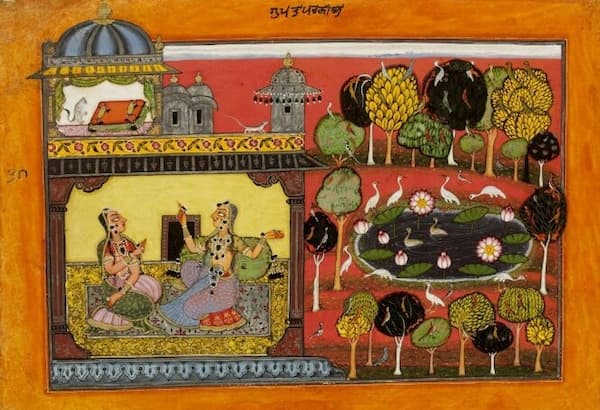
PDU
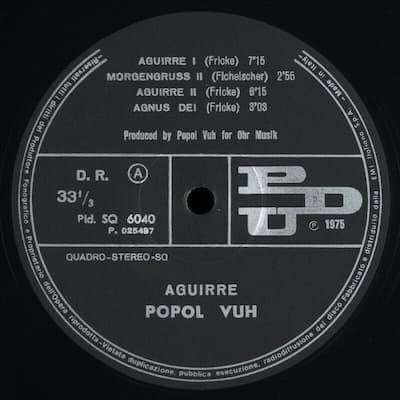
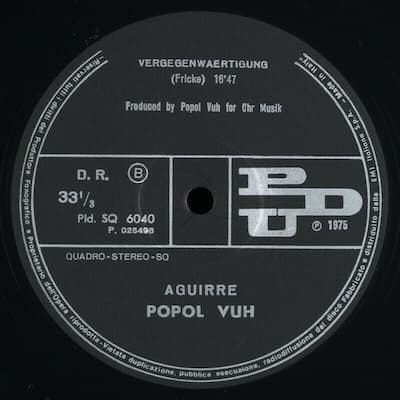
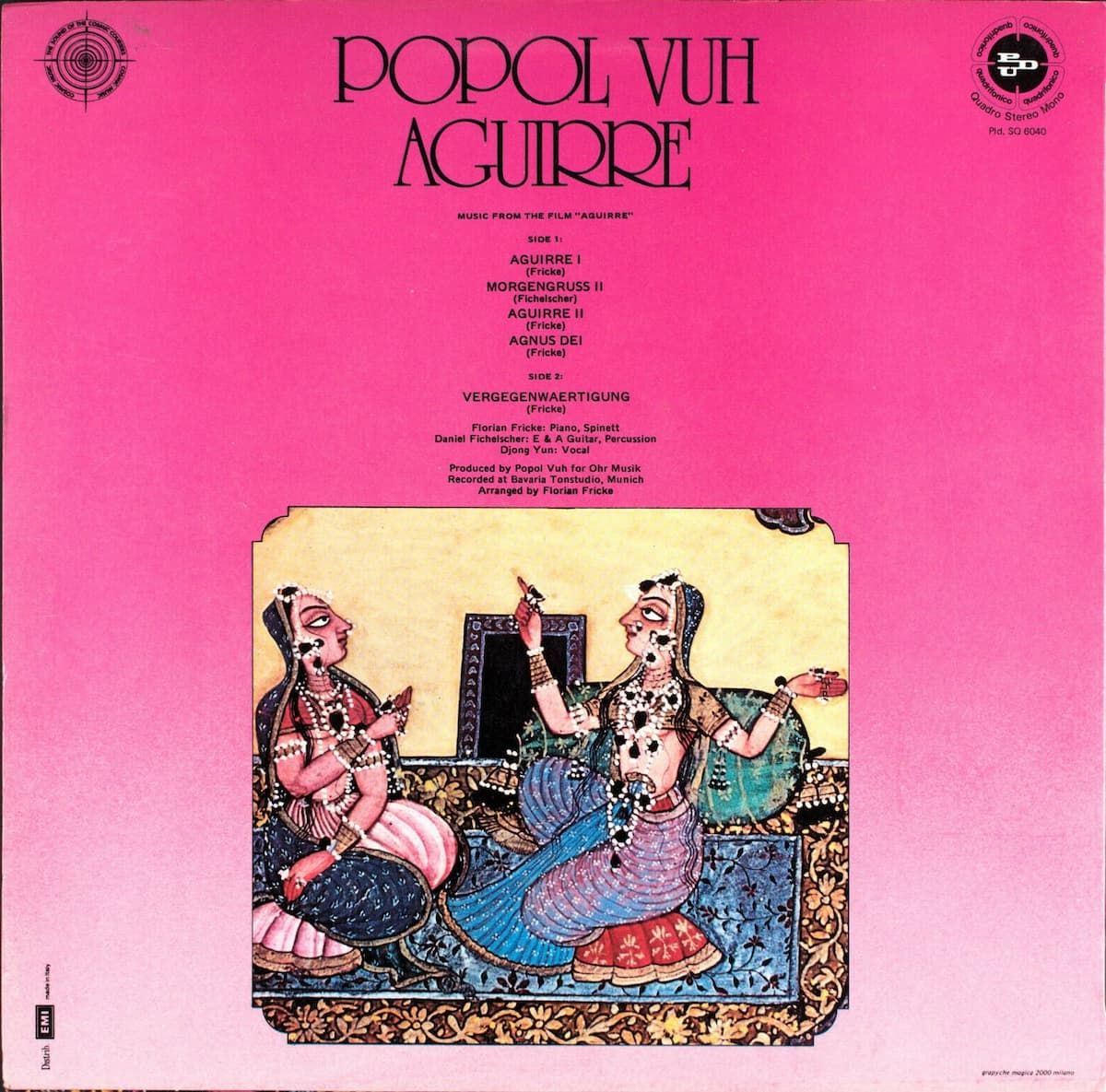
BARCLAY
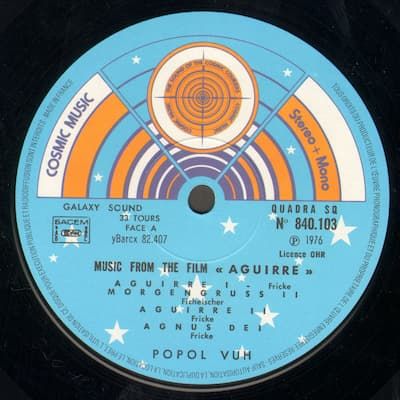
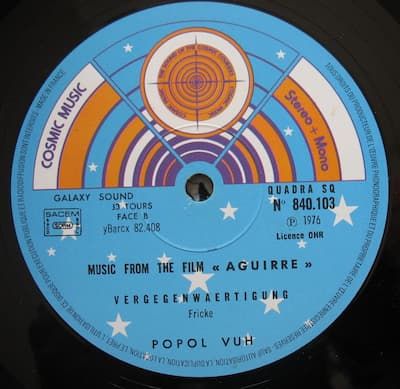
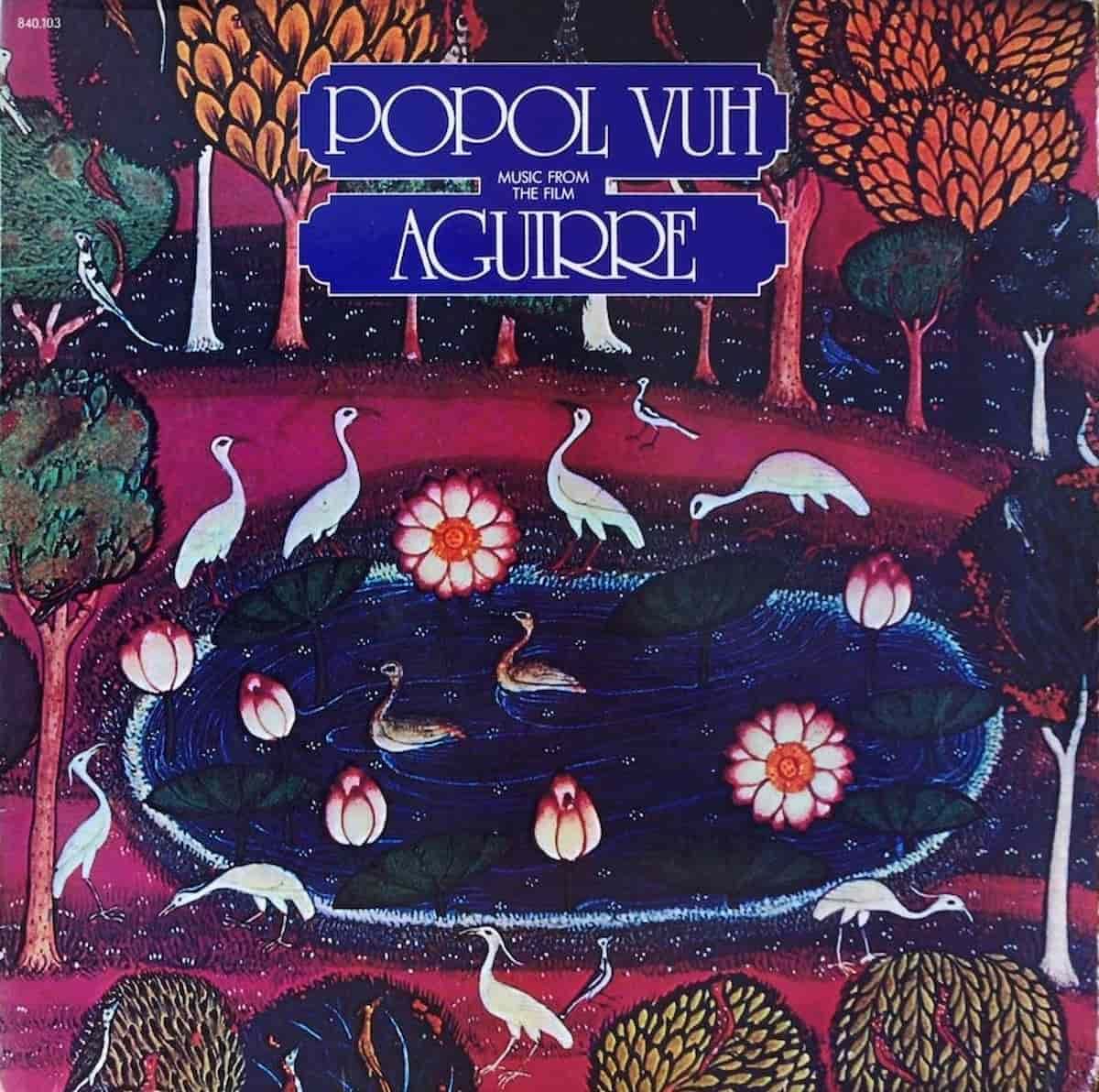
BARCLAY (CS)
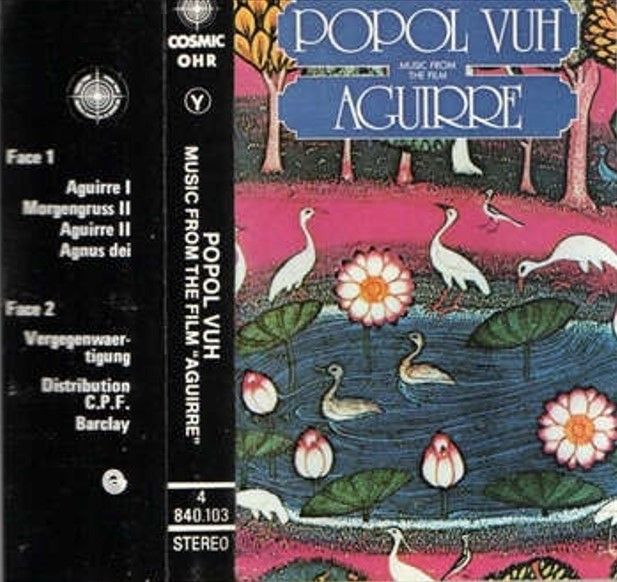
POP IMPORT
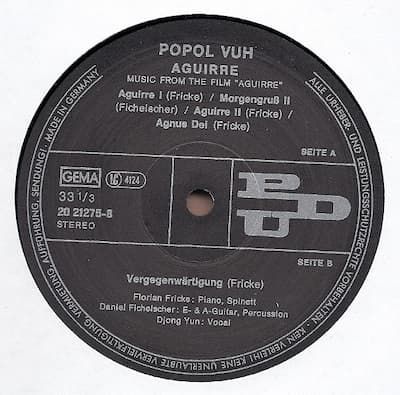
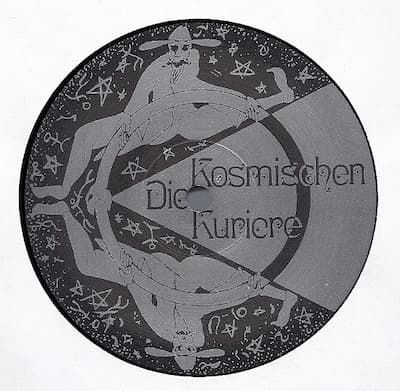
ECOS
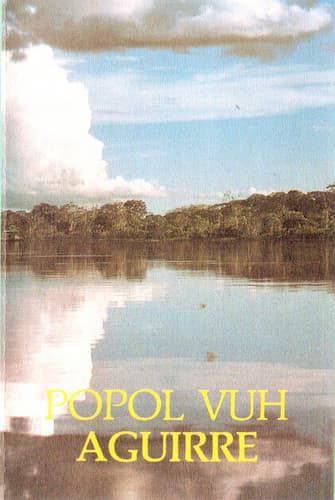
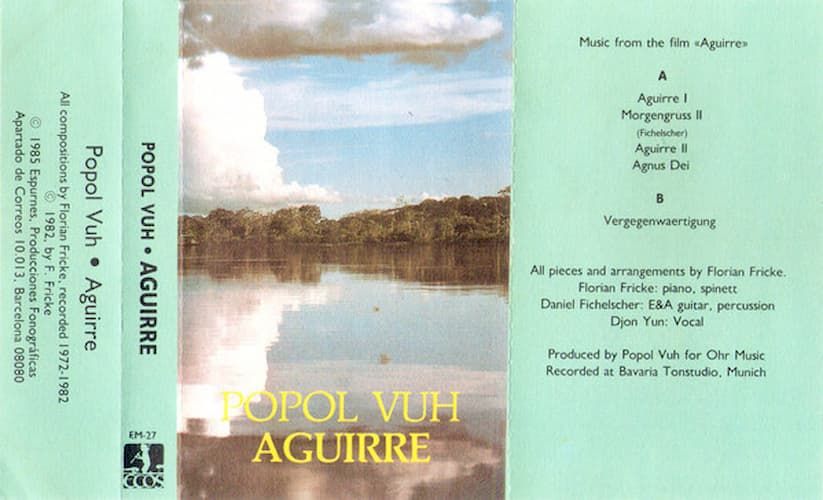
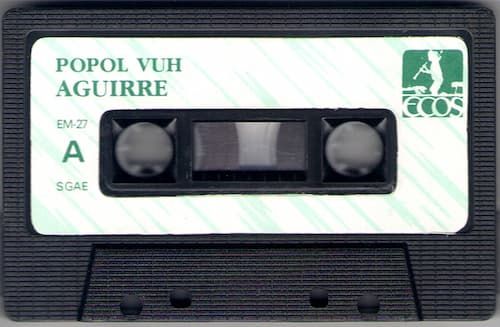
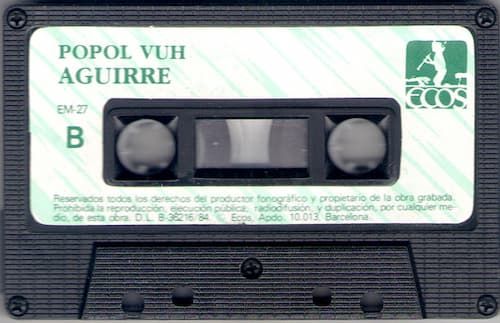
THINK PROGRESSIVE
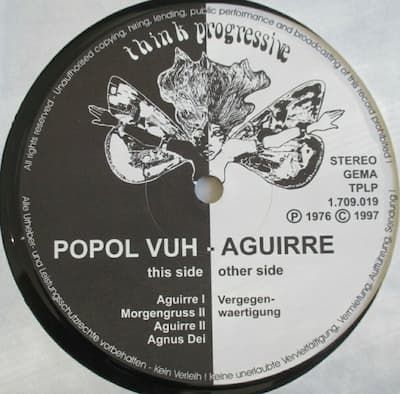
SPV
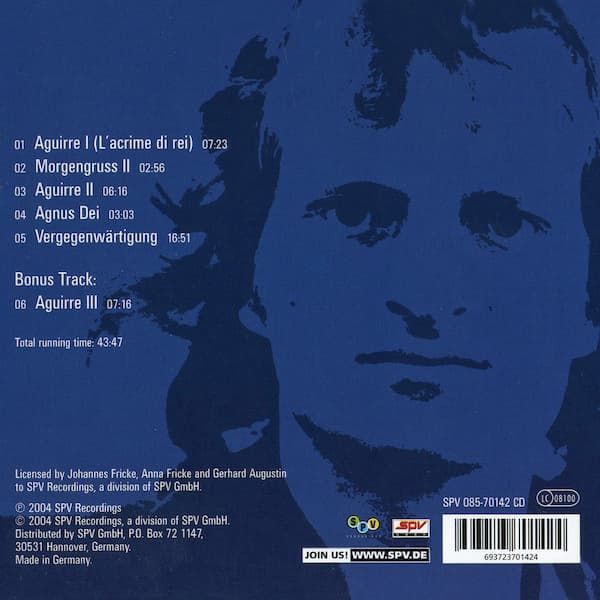
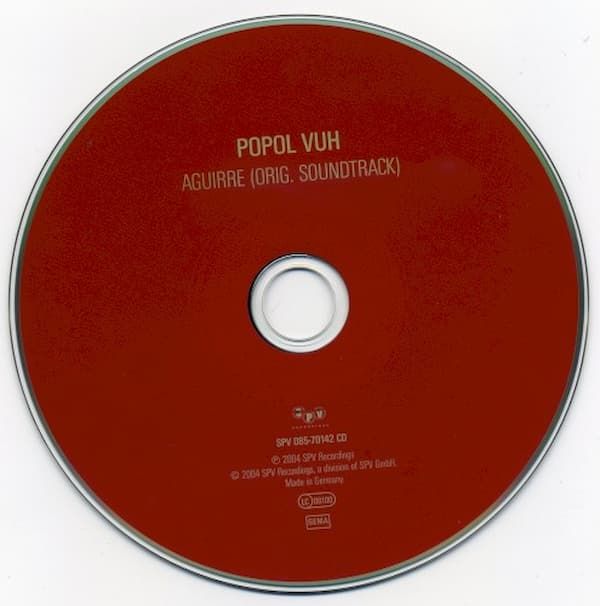
WAH WAH
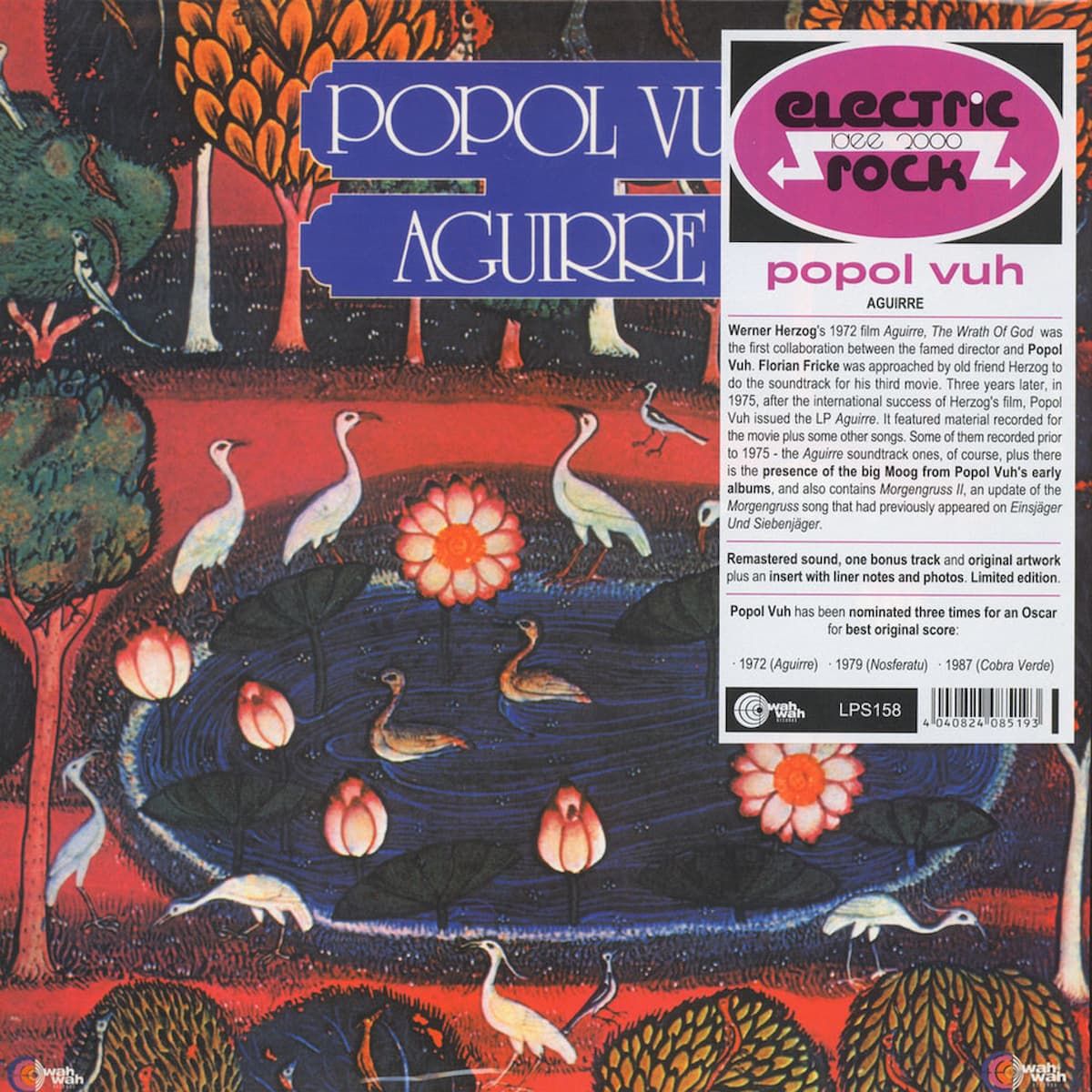
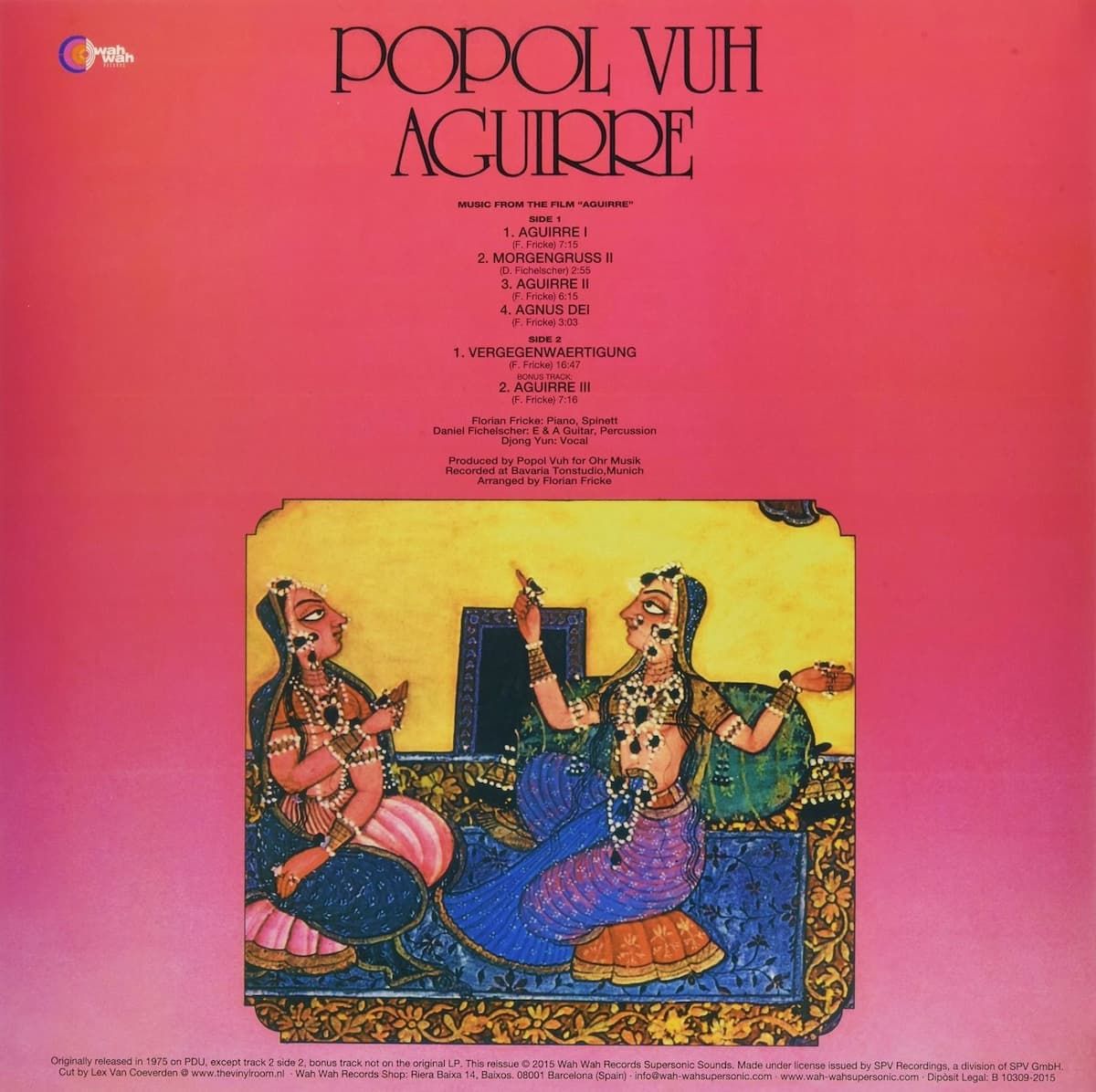
BMG
